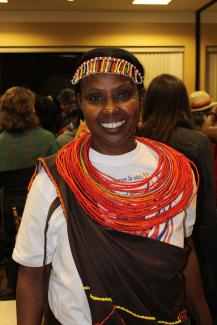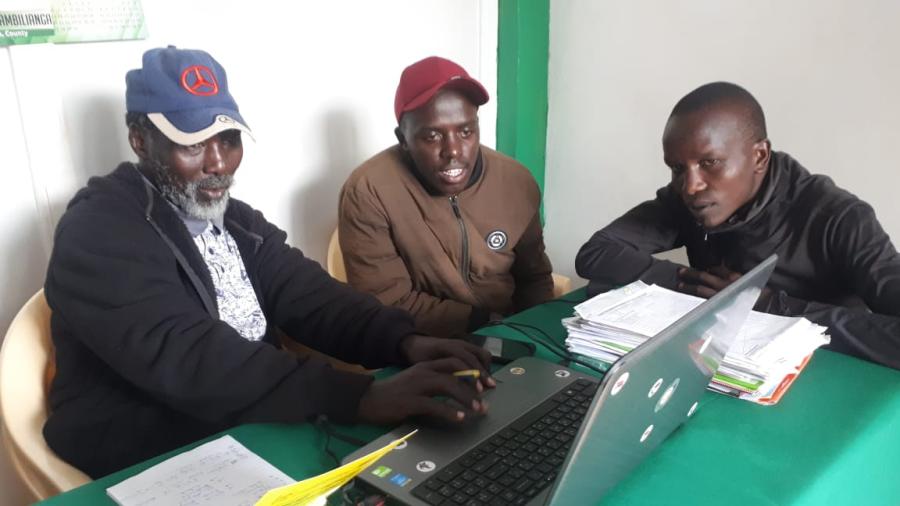
I am the Woman Empowerment program officer at Kivulini Trust. From my community I am the first to come and attend this World Conference on Indigneous Women. I came here to learn so I can go and share with my people and so that we can try to fight for our rights which are in the UN Declaration on the Rights of Indigenous Peoples.
Our women back home face many problems, but now with this UN Declaration some of them have improved. We face a shortage of water as well as drought because we are living in a desert. Also, access to healthcare is difficult. Many of our people are illiterate and few of our girls are educated, so we are trying to promote culture education and make the women aware of their rights in our new constitution.
One of the biggest challenges we are facing is that our youth are growing up not knowing our culture; in our cities they do not even know our own language. We are trying to look for programs that will revive some languages. We are also looking to press the government to try to include people to be taught our local languages. Now in Kenya, the lower classes from Standard 1 to Standard 4 have agreed that the children should be taught their local languages and culture, which is a plus for us now.
But that is not enough, because culture is not only language. There is architecture, the way of caring for the animals, the way of caring for the environment. Before we had elders who knew how to care for the environment, such as knowing what trees should not be cut. This is a problem that must be explored, how to take care of our environment. In our government back in Kenya, they have tried to make awareness on how to preserve the environment through education. It has not reached our people down in the desert. We still have the challenge of going to meet them so our people can be taught.
The role of our women is to pass this message to other women. There may be some who have not come because they are less privileged, but do have wise ideas. We would like to talk to them and get the information from them. We can communicate with them and say things that have been left unsaid. That is one of our roles. Another role is to collaborate, to try and lobby for the rights of Indigenous Peoples and Indigenous women in our countries.
My message to the youth is you have a responsibility to learn your language. Our culture is very beautiful and comprises everything. Our culture comprises how to care for our environment, how to care for our health. The youth have the responsibility to help our culture by coming back from the cities and staying home. They must learn from the older people because once the elders die, they will die with their wisdom. We want them to go to school and then come home and learn our culture.
For women everywhere, we need to be more aggressive. This will allow all of our women to be at the same level so we can fight for our rights as a united group, not as individuals.



